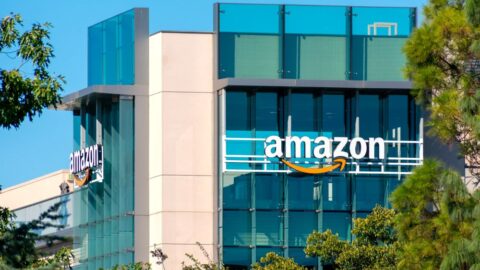Two major essential retailers have reported their Q1 2020 results, and they display these companies’ strength in the face of the COVID-19 crisis: Walmart’s same-store sales grew 10% during the quarter, while e-Commerce sales jumped 74%; and The Home Depot’s same-store sales rose 6.4% worldwide (7.5% in the U.S.), but costs related to operating during a pandemic weighed down its earnings.
During an earnings call, Walmart CEO Doug McMillon divided the quarter into three parts:
- The early part of the quarter saw shoppers stockpiling groceries and household essentials in the weeks leading up to the outbreak;
- The middle of the quarter was when consumers started buying puzzles, video games and office and exercise equipment to help them work and entertain themselves during quarantine;
- The end of the quarter saw an increase in discretionary purchases of items like TVs, clothes and toys due to the stimulus checks.
Walmart also announced that it would phase out the Jet.com brand, stating that the Walmart name “resonates regardless of income, geography or age.” McMillon credited the acquisition as a key element in its successful expansion of curbside pickup and other fulfillment programs, and noted that the Jet name could return in the future.
While Walmart was able to prosper this quarter despite COVID-19, the pandemic’s impact was still felt. The retail giant withdrew its 2020 financial outlook due to the uncertainty the crisis has created, and special bonuses and expanded payouts were a major part of its huge jump in spend — though some analysts say that was more than offset by the potential business boom created by the massive surge in e-Commerce sales.
“The reductions in margins, especially when considering at least $900 million in coronavirus-oriented spend and the explosion in higher-cost online sales, is actually fairly benign, indicating that Walmart’s online business was able to largely handle this growth surge within its existing capability,” said Charlie O’Shea, Lead Walmart Analyst at Moody’s in commentary provided to Retail TouchPoints. “Going forward, we would expect Walmart to leverage these experiences and look to retain new customers as well as continue to deepen and broaden all customer relationships.”
Additionally, Walmart has big plans for the future of delivery, and its recent performance gives it a good jumping off point to capture market share from Amazon. In particular, Walmart’s limited third-party fulfillment program helped its fulfillment performance metrics to remain stable, while Amazon’s delivery windows grew due to sheer volume.
“Walmart proved to many first-time Walmart.com shoppers that it could deliver a great two-day shipping experience, including for many of the same products that Amazon was struggling to deliver in the same period,” said Kunal Chopra, CEO at etailz in commentary provided to Retail TouchPoints. “While Amazon has since recovered, Walmart is continuing to invest heavily in growing its online channel, announcing in Q1 its ambitious plan to reach 75% of American consumers with free next-day delivery by year-end.”
Home Depot Sees Success Despite Putting Safety First
Even though Home Depot can’t match Walmart’s e-Commerce or delivery presence, the retailer reported significant sales growth for the quarter. The increases came despite limited stores hours and traffic as well as the cancellation of major promotions like Spring Black Friday.
“As the COVID-19 pandemic evolved, we anchored to the core values of our company by focusing on two key priorities: working to ensure the safety and well-being of our associates and customers, and providing our customers and communities with essential products,” said Craig Menear, CEO of Home Depot in a statement. “We took early and decisive action to intentionally limit customer traffic in our stores, which we believe had a significant impact to sales in many markets.”
The retailer also incurred a total of $850 million in pre-tax expenses due to various actions taken to support its workers. Measures included paid time off for all hourly associates; additional paid time off for older and higher-risk associates; and weekly bonuses and doubled overtime pay.
Like Walmart, Home Depot withdrew its financial guidance for the remainder of 2020.












